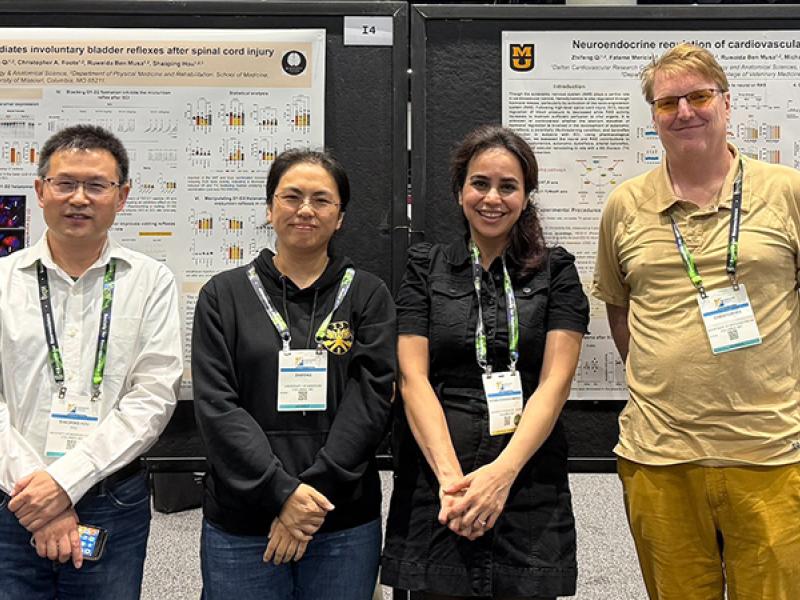
Researchers at the University of Missouri School of Medicine are partnering with Columbia University in New York City on a groundbreaking project funded by the Advanced Research Projects Agency for Health (ARPA-H) to develop, validate, and bring to market a permanent solution for osteoarthritis of the knee, an increasingly common condition impacting more than 70 million people in this country alone.
ARPA-H recently awarded the combined institutions up to $39 million as part of the agency’s Novel Innovations for Tissue Regeneration in Osteoarthritis (NITRO) program. The funding will support the development of NOVAJoint, a patient-specific biologic knee joint replacement engineered from living cells.
Osteoarthritis is a degenerative condition of joints and culminates in progressive pain, loss of mobility, and diminished quality of life. There is no cure for osteoarthritis and when it affects people’s knees, it often leads patients to seek artificial total knee replacement surgery. When the materials used in artificial knee joints wear out, fail, or result in recurrent pain and dysfunction, the metal and plastic implants may need to be revised or may have to be removed such that joint fusion or even amputation may be necessary. For decades, the “holy grail” of a biologic knee joint replacement comprised of living tissue rather than metal and plastic materials has been pursued as a potentially better alternative.

James L. Cook, DVM, PhD, William & Kathryn Allen Distinguished Chair in Orthopaedic Surgery and director of the Thompson Laboratory for Regenerative Orthopaedics will lead the MU team of scientists and surgeons The MU team will oversee the preclinical development and validation components, as well as the clinical trial, which will recruit patients to participate in this pioneering study at MU Health Care’s Missouri Orthopaedic Institute.
“This project has been a dream of mine since I was 6-years-old,” said Cook. “My grandfather had artificial knee replacement in both knees in his 50s and ended up having a total of 8 revision surgeries, eventually leaving him in a wheelchair. Our goal is to achieve a biologic knee replacement that seamlessly integrates with the patient’s own joint and restores pain-free function long-term.
The team expects to finalize a NOVAJoint prototype within two years, and the clinical trial to be completed within five years, with eventual commercialization to follow.
Along with Cook, James P. Stannard, MD, chair of the Department of Orthopaedic Surgery and medical director of the Missouri Orthopaedic Institute, Aaron Stoker, PhD, associate director, Thompson Laboratory for Regenerative Orthopaedics, Chantelle Bozynski, DVM, MSc, head of pathology and translational research, Clayton W. Nuelle, MD, medical director of the MU Joint Preservation Center, Lisa Royse, PhD and Kylee Rucinski, PhD, MHA, assistant research professors of orthopaedic surgery, and Vicki Jones, director of research operations and planning at the Missouri Orthopaedic Institute will participate on the MU team to help complete the translational research and engage patients in optimizing the chances for success for this groundbreaking work.
“The decades of work focused on joint preservation strategies done in the Thompson Laboratory for Regenerative Orthopaedics and our long-standing collaboration with Columbia University provide the ideal foundation to see this innovative project to fruition to help patients like my grandpa,” said Cook. “We are so grateful that ARPA-H is supporting this work.”
Earlier this year, Cook and the MU School of Medicine’s Department of Orthopaedic Surgery received more than $1 million dollars from the National Institute of Arthritis and Musculoskeletal and Skin Diseases, the Arthritis Foundation and the Centers for Disease Control and Prevention to serve as the data management, biobank and biomarkers analysis site for a clinical trial aimed at prevention of osteoarthritis of the knee through diet and exercise.
The views and conclusions contained in this document are those of the authors and should not be interpreted as representing the official policies, either expressed or implied, of the United States Government.





